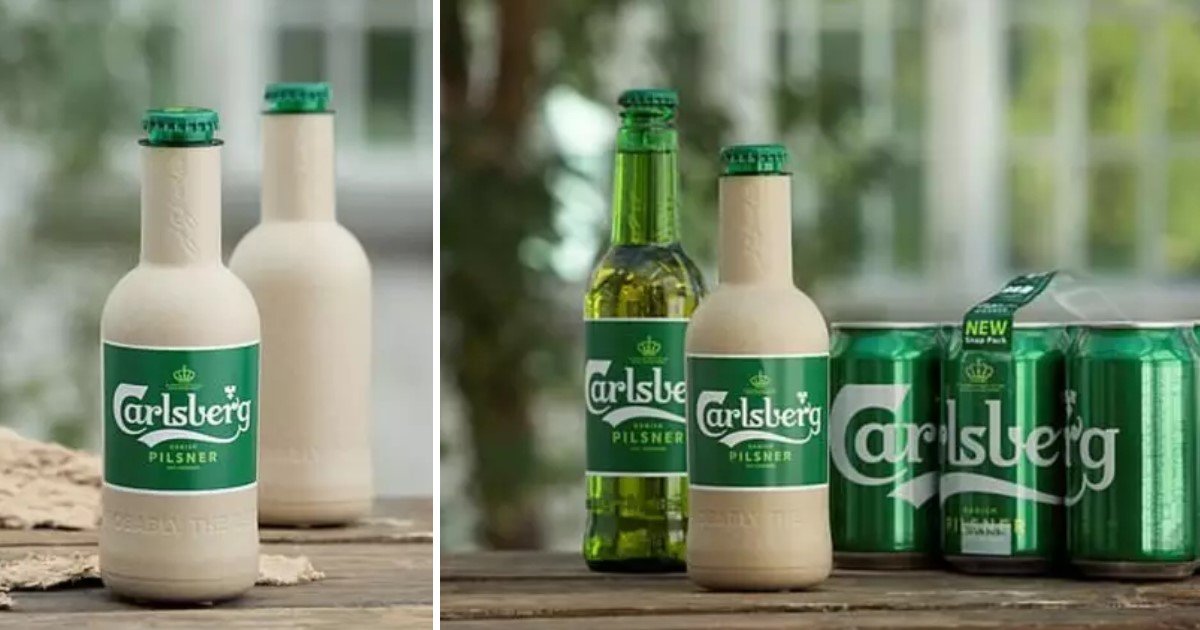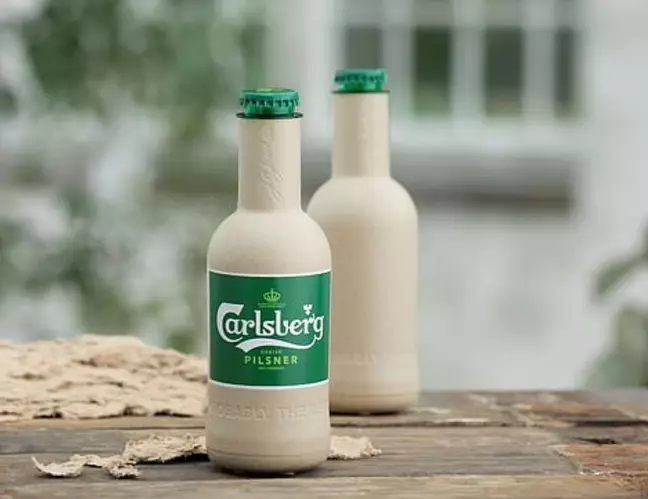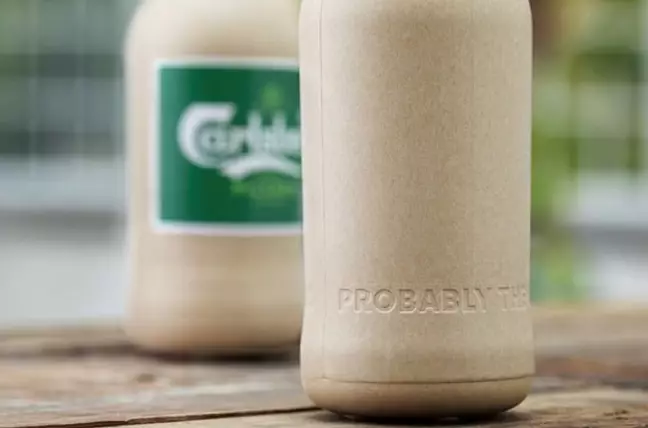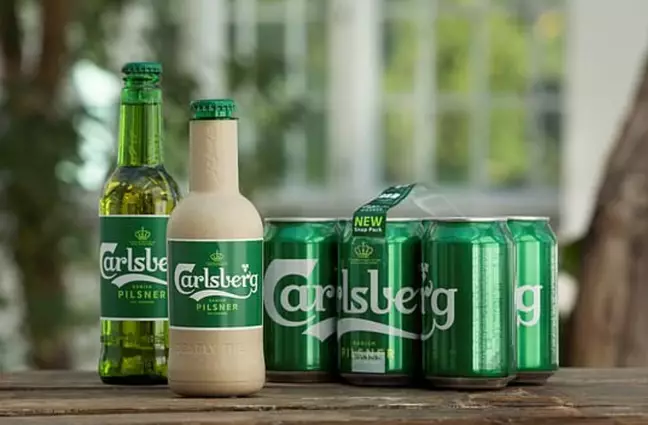Carlsberg has revealed a paper bottle prototype that is created exclusively from wood fibers, harvested in an environmentally responsible way.
The Copenhagen-based drink producer announced the bottle a few days back in an attempt to decrease its carbon footprint up to the maximum possible extent.
The company introduced two different designs of the sustainable bottle. According to the firm, the bottles are “fully recyclable and have an inner barrier to allow the bottles to contain beer.”
For now, the inner lining of the body is made of polymers but Carlsberg says it is working to find alternatives so as to develop the bottles absolutely from sustainable natural materials.
But if you happen to care more about the bottle you are holding than the planet you are inhabiting, the Danish brewery is offering the existing bottles as well.
To put it simply, the new design is not a replacement but just an alternative option for the customers to choose from.
Vice president of group development at Carlsberg, Myriam Shingleton, explained that the paper bottle, which is still a prototype, will be an environmentally better option because its manufacturing process is greener than that of aluminum or glass bottles.
She said: “While we are not completely there yet, the two prototypes are an important step towards realizing our ultimate ambition of bringing this breakthrough to market.
“Innovation takes time and we will continue to collaborate with leading experts in order to overcome remaining technical challenges.”
Carlsberg’s announcement of introducing a sustainable drink container has come just after Coca-Cola announced it’ll soon stop using plastic wraps to pack multi-packs of tins and bottles supplied to retailers.
Above 30 million packs of products from Coca-Cola, including Sprite, Dr. Pepper and others, will come wrapped in sustainable packaging.
This is Coca-Cola’s beginning of the end of the use of ‘virgin plastic’ in its products. If the plan is successful, it will help cut down thousands of tons of plastic consumption from its market in western Europe.
It is not just producers who are making efforts to reduce plastic waste production. Supermarkets, retailers, and other business chains are also putting in effort for the noble cause.
Morrisons, for instance, is planning to declare its vegetable and fruit shops totally plastic-free across Britain. It will help the food chain cut down more than 150 tons of plastic waste produced every year.
Let’s hope others follow suit too.
Replaced!





